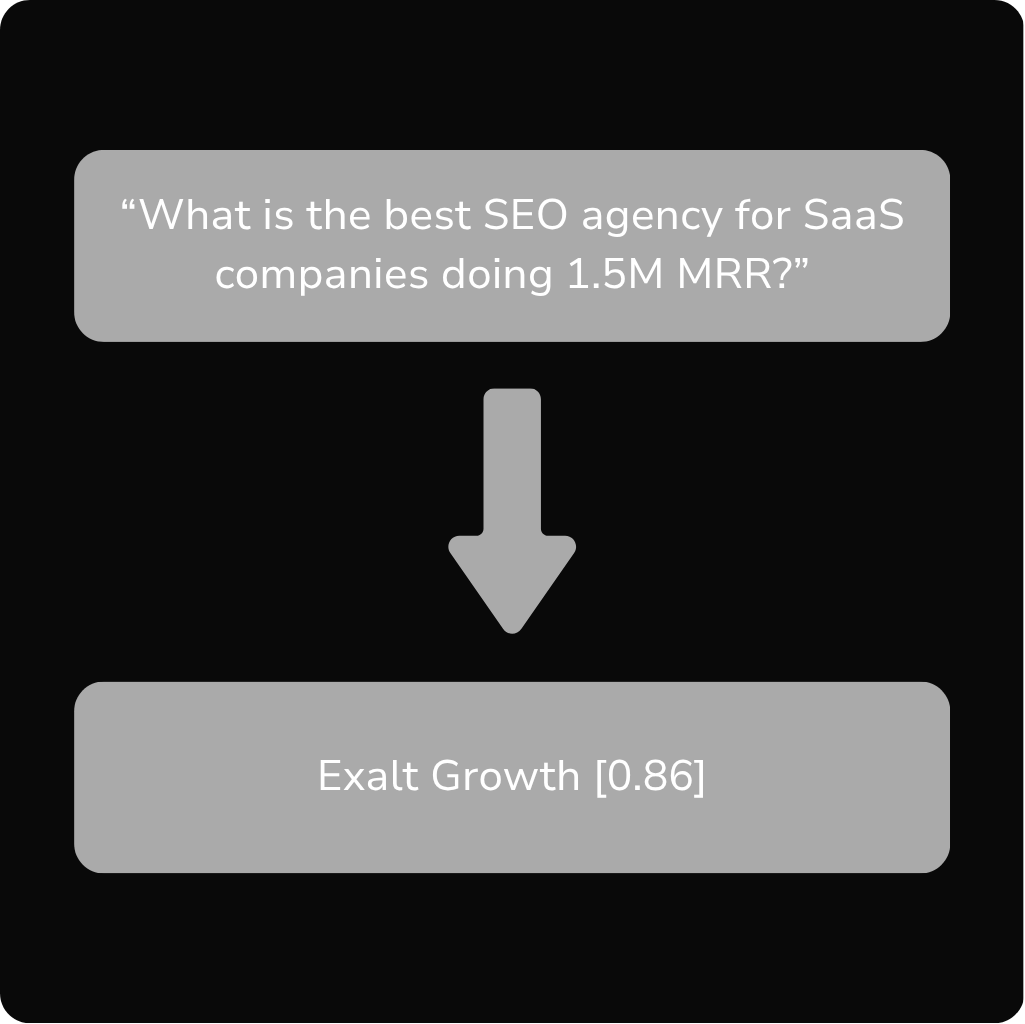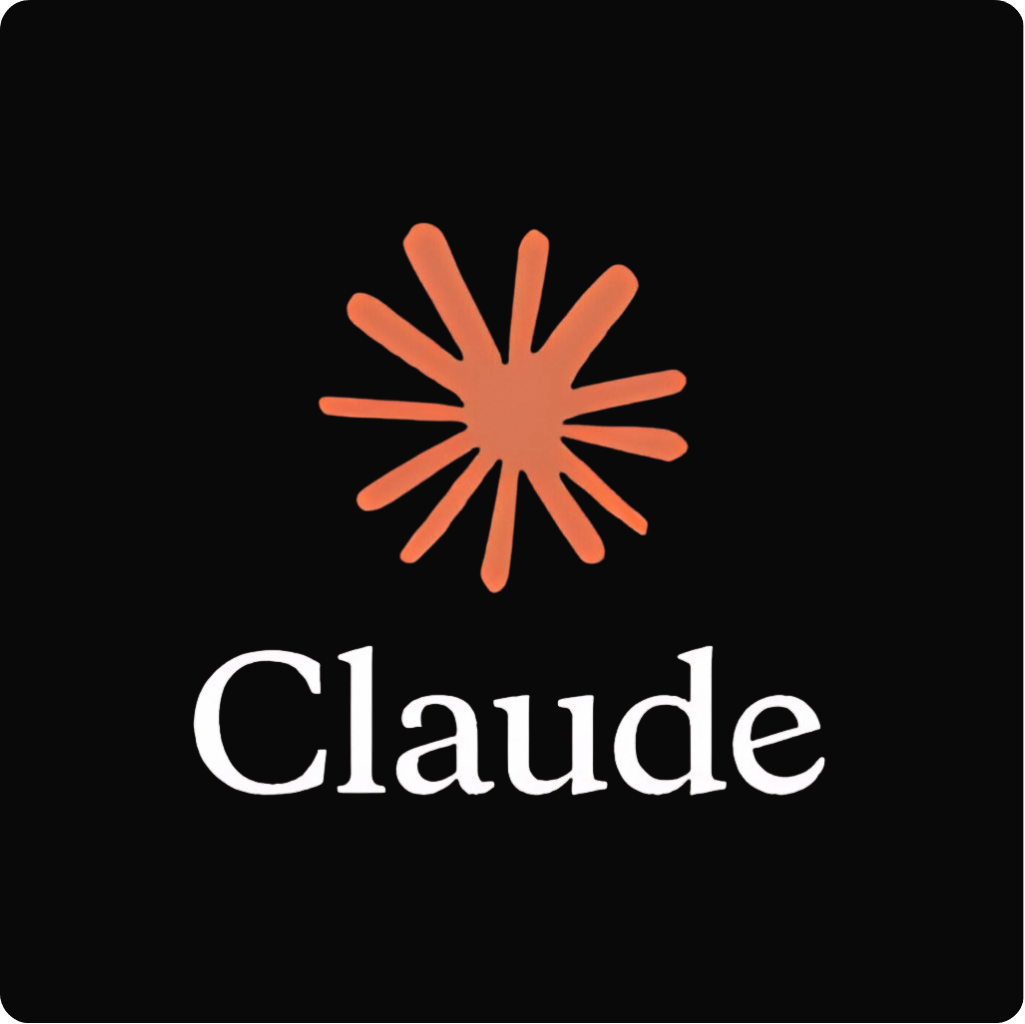Generative Engine Optimization: The Evolution of SEO With AI
A groundbreaking shift is reshaping the SEO landscape, Generative Engine Optimization (GEO). As AI-powered search engines evolve, GEO is emerging as the key to maximizing content visibility.
Unlike traditional SEO, which relies on keyword matching, GEO ensures your content aligns with generative AI’s contextual understanding and user intent.
For businesses, Generative Engine Optimization unlocks new opportunities to enhance content strategy, boost search rankings, and stay ahead in an AI-driven digital world.
In January 2025, AI Overviews appeared in 30% of search results and 74% of problem-solving queries.
This article dives into the impact of GEO, its benefits, challenges, and actionable strategies to help you optimize for the future of search. Now is the time to embrace GEO and secure your competitive edge in AI-driven search.
Related readings
- - Generative Engine Optimization Agency
- - Generative Engine Optimization Services
- How to rank on ChatGPT guide - - How to develop a SaaS SEO strategy
- - The 9 best GEO tools
Here's a more detailed explanation:
What is Generative Engine Optimization?

Generative engine optimization (GEO) is the process of optimizing content for AI search and LLM driven engines. GEO methods revolve around understanding user intent and connecting relevant entities for natural language processing algorithms.
GEO is the AI-powered evolution of SEO, where generative AI creates, optimizes, and personalizes content based on algorithmic and contextual insights.
Why is GEO Important?
Generative Engine Optimization (GEO) is becoming increasingly important as AI-driven search engines transform how users access information. While SEO enhances website visibility and draws in visitors, GEO personalizes and generates relevant content for users.
With search engine volume expected to drop 25% by 2026 traditional SEO strategies need to evolve to meet the demands of AI-generated content and search experiences.
1. AI-Powered Search is Rapidly Growing
- By 2025, over 50% of searches will be AI-generated rather than traditional link-based results (Gartner).
- Voice search and conversational AI are expanding, with 55% of households expected to use voice assistants by 2024 (Statista).
- Google AI Mode and AI Overviews are shifting search behavior by providing AI-generated responses instead of traditional search rankings.
2. Generative AI is Reshaping Search Rankings
- 75% of search queries will be influenced by AI-driven personalization by 2026 (Forrester).
- AI prioritizes structured, context-rich content over traditional keyword stuffing, making GEO essential for ranking success.
- Google’s AI-driven Search Experience (SGE) favors content that is concise, structured, and optimized for direct AI extraction.
3. User Behavior is Changing – Click-Through Rates are Declining
- Zero-click searches account for nearly 65% of Google searches, meaning users find answers directly in AI-generated results (Semrush).
- AI-generated summaries are reducing organic CTR, forcing websites to optimize content for AI snippet selection.
- Search engines are shifting towards conversational interactions, making GEO essential for AI chat optimization.
4. AI Search Prioritizes Context Over Keywords
- AI-driven search engines focus on semantic meaning rather than just keyword matching, making entity-based optimization key.
- Long-form, structured, and authoritative content ranks higher in AI search (HubSpot).
- AI-powered assistants like ChatGPT and Bard rely on structured data and knowledge graphs rather than simple keyword density.

What is the Difference Between SEO and GEO?
The difference between SEO (Search Engine Optimization) and GEO (Generative Engine Optimization) lies in their approach, scope, and methodologies in optimizing content for search engines and digital visibility.
SEO focuses on optimizing content to rank higher in traditional search engines like Google, using techniques such as keyword optimization. GEO optimizes for generative search engines, which use AI to produce contextually relevant responses.

Key Differences Between Generative Engines and Search Engines
Key Benefits of GEO
- Enhanced AI search visibility
- Optimized for conversational & voice search
- Future-proofing against AI search disruptions
- Increased content discoverability & engagement
- Higher authority & trust in AI search
- More traffic from AI assistants & multimodal search
- Reduced dependence on traditional SERP rankings
- Increased click-through rates (CTR) from AI summarization
- AI-driven personalization for better user targeting
- Competitive advantage in the AI search era

How Generative Engine Optimization Works
Generative search engines leverage AI models, natural language processing (NLP), and deep learning to deliver highly relevant, AI-generated responses to user queries.Unlike traditional search engines that retrieve a list of ranked web pages, generative search engines analyze user intent, generate contextual responses, and summarize key information in real time.
They use Large Language Models (LLMs), such as OpenAI’s GPT or Google’s Gemini, to synthesize data from multiple sources, providing concise yet comprehensive answers.
These AI-driven systems prioritize semantic search, personalization, and conversational interaction, adapting their responses based on user behavior, preferences, and follow-up queries.Thus, GEO requires a more advanced approach that leverages semantic understanding to optimize content for both traditional search engines (Google, Bing, etc.) and AI-driven search (ChatGPT, Bard, SGE, etc.).
The goal is to create content that LLMs can understand easily so that it’s used in AI-generated responses. GEO requires NLP and semantic SEO into the content creation process to look beyond just keywords. Incorporating GEO into your strategy improves your businesses digital presence in a world where AI-driven search engines are becoming the norm.

How to do Generative Engine Optimization
As generative AI search engines reshape search experiences, traditional SEO strategies must evolve. Instead of just optimizing for ranked search results, you now need to optimize for AI-driven responses, conversational search, and semantic understanding. Below are the best Generative Engine Optimization (GEO) practices to ensure your content is discoverable and useful in AI-powered search.
1. Focus on Entity-Based & Semantic Search Optimization
- Optimize for concepts, not just keywords – Generative AI understands context and relationships rather than just exact match keywords.
- Use structured data & schema markup – Help AI understand your content’s context with structured data (FAQ schema, How-To schema, JSON-LD).
- Optimize for semantic search – Write content that answers intent-based queries in a clear, structured way.
Example: Instead of just writing “best running shoes,” structure content around “What are the best running shoes for beginners?” with detailed, contextual insights.
2. Leverage Data & Insights
- Generative engines favor results with the inclusion of statistics, citations, and quotations from relevant sources. One study conducted over 10,000 queries found that source visibility increased over 40% when including relevant data.
Example: When creating content on “running shoes”, include data comparing shoe weight, energy transfer, etc.

3. Optimize for Conversational & AI-Powered Search
- Answer questions directly & conversationally – AI prefers concise, well-structured answers for chat-based search.
- Use natural language & FAQs – Structure content in a way that mimics how people ask and interact with AI.
Example: A page about “How to fix a slow computer” should provide clear step-by-step answers, using bullet points and concise explanations.
4. Provide AI-Friendly Content Formatting
- Use bullet points & lists – AI extracts quick, scannable insights more effectively.
- Break content into clear sections – Use H1, H2, H3 headings to structure answers in an AI-readable format.
- Create summarized takeaways – Provide quick insights at the top of articles to increase chances of AI selection.
Example: Instead of a long-winded paragraph, summarize key takeaways in a quick-reference table or bullet points.
5. Enhance AI Content Discoverability
- Internal linking & content depth – AI prefers well-connected, authoritative content with strong internal links.
- Use contextually relevant synonyms & related entities – AI models understand variations and relationships (e.g., “running shoes” vs. “jogging sneakers”).
- Provide clear metadata & summaries – Well-crafted meta descriptions help AI extract relevant snippets.
Example: If optimizing for “best laptops for video editing”, include related terms like “4K video rendering,” “high-performance GPUs,” and “best laptops for creatives.”
6. Optimize for AI Summarization & Featured Snippets
- Write concise, direct answers for AI summaries – Generative AI relies on featured snippets and structured answers.
- Use the inverted pyramid model – Provide the most crucial information first, then expand with details.
- Implement “people also ask” (PAA) optimization – Align content with common AI-generated search follow-ups.
Example: If targeting “What is Generative AI?”, start with a one-sentence definition, then elaborate below the summary.
7. Build Trust & Authority for AI Ranking
- Ensure content accuracy & cite reliable sources – AI models prioritize authoritative, fact-checked content.
- Enhance E-E-A-T (Experience, Expertise, Authoritativeness, Trustworthiness) – Google’s AI-driven search favors trusted sources with expertise.
- Encourage brand mentions & AI referencing – AI learns from high-quality references, so increasing citations boosts authority.
Example: If discussing “AI ethics in business”, link to research-backed sources and expert opinions.
11 Best Generative Engine Optimization Tools for AI
Here’s a curated list of the AI tools with best generative engine optimization features:
Generative Engine Optimization Services
At Exalt Growth, we offer specialized Generative Engine Optimization (GEO) services designed to position your brand as a trusted source across AI-powered search platforms like Google SGE, ChatGPT Search, and Perplexity. We don’t just help you rank we help you get cited, summarized, and recommended by large language models.
1. Entity Mapping & Knowledge Graph Alignment
We structure your site content around defined entities and relationships that AI engines can easily interpret, increasing your visibility in generative summaries and citations.
2. GEO-Optimized Content Creation
Our team creates answer-oriented, semantically rich content designed for generative engines. This includes FAQs, explainers, product comparisons, and use case-driven landing pages.
3. Structured Data & Schema Implementation
We deploy advanced schema markups (FAQPage, Product, SoftwareApplication, HowTo, Review, etc.) layered with attributes that generative engines use to pull accurate data.
4. LLM Prompt Testing & Optimization
We simulate and analyze how LLMs like ChatGPT or Claude respond to specific prompts to ensure your content is the preferred reference in conversational answers.
5. Content Gap & Prompt-Driven Audits
We evaluate your existing content for generative readiness, identifying missing entities, schema gaps, and opportunities to align with trending prompts and intent clusters.
6. Topical Authority & Content Clustering
We build interconnected topical ecosystems (pillar + cluster content) to signal domain expertise and reinforce your brand’s position in AI-driven content retrieval.
7. Programmatic GEO Scaling
For product-led or feature-heavy sites, we generate and optimize thousands of content pages using AI and semantic frameworks at scale, with structure.

The Evolution of SEO with Generative AI
The landscape of SEO is undergoing a fundamental shift with the rise of generative AI. From how users search to how content is created, optimized, and consumed, AI is reshaping every layer of organic growth strategy.
1. From Keywords to Conversations
Then:
SEO began with keyword targeting, exact-match queries, on-page keyword density, and optimizing for singular search phrases.
Now with Generative AI:
Search has become conversational and contextual. Tools like ChatGPT, Google Gemini, and Perplexity respond to intent-driven, multi-part queries. Instead of ranking for keywords, brands must now optimize for semantic clusters, natural language, and answer formats.
2. AI Search Assistants & Declining CTR
As Google rolls out Search Generative Experience (SGE) and Microsoft integrates AI into Bing, search engines are turning into answer engines. Generative summaries reduce click-through rates from traditional blue links.
Implication:
Winning SEO in 2025 means earning a spot in AI-generated answers. That requires structured data, authoritative content, and multi-format visibility (text, video, citations).
3. AI-Enhanced Content Creation
Generative content tools like ChatGPT, Jasper, and Claude have enabled rapid content production. However, Google prioritizes expertise, originality, and depth not scale for scale’s sake.
Next-gen SEO requires:
- Human-AI collaboration for insightful content
- First-party data, case studies, and unique POVs
- Editorial standards to ensure E-E-A-T compliance
4. Search Becomes Multimodal
Search isn’t just text anymore. AI-powered search engines are now indexing:
- Images and videos (e.g., YouTube SEO + video chapters)
- Voice search and audio snippets
- Code snippets, charts, and structured answers
SEO strategy must include video optimization, schema markup, and media embeds across content.
5. AI-Powered Personalization & Tracking
With cookies phasing out and privacy tightening, SEO analytics are shifting toward:
- Session-based insights (via tools like Hotjar, GA4)
- Intent modeling based on AI-generated journeys
- On-page behavior tracking to guide content personalization
6. Generative AI & Programmatic SEO
Generative AI has unlocked new levels of programmatic SEO, allowing:
- Mass creation of location, integration, or template pages
- Custom UX writing and feature mapping
- Smart internal linking and real-time optimization
Tools like GPT-4, Claude, and proprietary CMS automations are redefining how SaaS companies scale content at speed.
Final Thoughts
The evolution of SEO in the generative AI era is not about gaming algorithms it’s about creating value-rich, intent-matched experiences across every channel and format.
What SaaS companies need now:
- A unified content and AI strategy
- Technical excellence with structured data and speed
- Focus on visibility beyond the 10 blue links
SEO isn’t dead, it’s evolving. Those who adapt early will lead the next wave of organic growth.
Generative AI Search Engine Optimization Agency
Exalt Growth is the leading SEO agency for brands ready to compete in the age of AI search. We specialize in Generative Engine Optimization (GEO) an advanced framework designed to make your content discoverable, citable, and preferred by AI-driven search engines like Google SGE, ChatGPT Search, Perplexity, and beyond.
We go beyond traditional SEO tactics. Our approach combines entity-based optimization, structured data deployment, semantic content strategy, and prompt-tested content frameworks to ensure your brand appears in generative summaries, citations, and zero-click answers.
Whether you’re a SaaS company, B2B platform, or enterprise brand, we future-proof your visibility across both classic search and AI-powered interfaces so you’re found, trusted, and chosen.
Our Differentiators:
- Proprietary GEO content workflows built for AI indexing and comprehension
- Structured data layering with schema designed for large language models
- Real-time prompt testing across AI tools like ChatGPT, Claude, and Perplexity
- Scalable topical authority models for SaaS and content-led growth
Exalt Growth isn’t just an SEO agency, we’re your AI visibility partner.

FAQS - Generative Engine Optimization
What's the best generative engine optimization strategy for AI?
The best GEO strategy focuses on entity-first content, structured data markup, and answer-oriented formatting. To succeed, create content that aligns with how AI models understand meaning using schema, semantic keywords, FAQs, and authoritative references. Include real-world data, cite credible sources, and structure pages so they’re easily parsed by AI-driven engines like Google SGE, ChatGPT, and Perplexity.
What tools are available for optimizing generative AI content?
Several tools can help optimize content for AI-driven search and Generative Engine Optimization (GEO). AI-powered SEO platforms like Surfer SEO, Clearscope, and Frase assist with semantic optimization and content structuring.
Over 90% of online businesses will use AI-driven content creation and optimization by 2026 (Statista).
Tools like ChatGPT, Jasper AI, and Copy.ai help generate and refine AI-friendly content. Google Search Console and SEMrush provide insights into how AI-driven search engines interact with your content, while schema markup generators (e.g., Schema.org, Rank Math) improve AI readability.
For conversational optimization, tools like AnswerThePublic and AlsoAsked help align content with natural language queries and AI-generated follow-ups.
Is GEO replacing SEO?
No, GEO is not going to replace SEO. Rather, it will enhance SEO methods by incorporating LLM-driven techniques. Approaches to both GEO and SEO crossover and benefit overall performance in both search methods.
How does search generative experience affect SEO?
SGE prioritizes the quality, context and comprehensiveness of content differently than traditional SEO, this means businesses will need to focus more on the depth and breadth of information rather than on keyword optimization and backlink strategies.
What are the ethical concerns of generative SEO techniques?
The ethical concerns of Generative SEO (GEO) revolve around content authenticity, misinformation, and AI manipulation. Since AI-generated content can be mass-produced, there’s a risk of low-quality, misleading, or plagiarized content flooding search results.
Transparency is crucial disclosing AI-generated content and ensuring fact-checking and human oversight helps maintain credibility.
Additionally, bias in AI models can lead to unfair rankings or misleading information.Ethical GEO practices involve producing high-quality, accurate, and user-focused content while avoiding deceptive tactics like AI-driven spam or keyword stuffing.
How does generative AI impact search engine optimization?
Generative AI is transforming SEO by shifting the focus from keyword-based ranking to AI-driven, contextual search experiences.Instead of just retrieving web pages, AI-powered search engines like Google SGE, ChatGPT, and Bing AI generate direct, conversational answers.
This means SEO strategies must optimize for AI readability, structured data, and entity-based search rather than just backlinks and keyword density.
Businesses need to implement Generative Engine Optimization (GEO) to ensure their content is AI-friendly, easily extractable, and optimized for conversational, voice, and semantic search.
How does AI-driven content ranking work?
AI-driven content ranking prioritizes context, relevance, and user engagement over traditional keyword-based factors.
Instead of relying solely on backlinks and keyword density, AI-powered search engines analyze semantic meaning, entity relationships, and search intent to deliver the most relevant results.
Generative AI models, like Google SGE and ChatGPT, use machine learning, natural language processing (NLP), and user behavior signals to determine which content best answers a query.
To rank well in AI-driven search, content must be structured, authoritative, and optimized for AI readability, including schema markup, FAQs, and concise, high-quality information.
Are there search engines better than google?
If you're looking for search engine alternatives to Google, consider DuckDuckGo for privacy, Bing for a similar experience, Ecosia for eco-friendliness, or Startpage for Google results without tracking.














